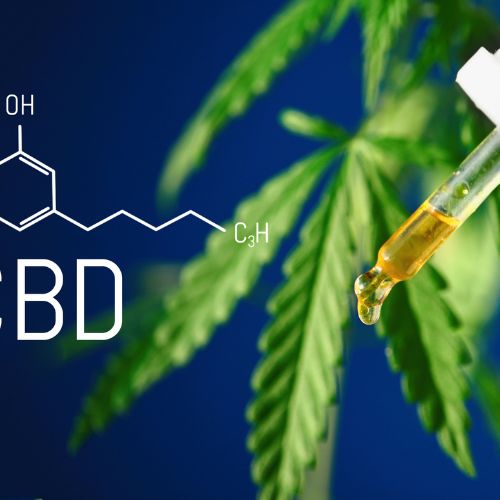
The Ultimate Guide to CBD: Unveiling the Science Behind Its Functionality and Why It’s a Must-Have for Your Wellness Routine
Looking for a comprehensive guide to the science behind CBD? Look no further than our expertly crafted article, which breaks down how CBD works and why you need it. From its impact on the endocannabinoid system to the potential health benefits it offers, we cover everything you need to know to make informed decisions about incorporating CBD into your wellness routine. So whether you’re a seasoned CBD user or just curious about its potential, read on to discover the science behind this powerful compound.
CBD, short for cannabidiol, has taken the health and wellness industry by storm in recent years. From oils and capsules to creams and edibles, CBD products are everywhere, promising a myriad of benefits. But what exactly is CBD, and how does it work? In this blog post, we will delve into the science behind CBD and explore why you might consider incorporating it into your daily routine.
CBD is a natural compound found in the Cannabis sativa plant, also known as hemp. Unlike its counterpart, tetrahydrocannabinol (THC), CBD is non-psychoactive, meaning it doesn’t induce the “high” typically associated with marijuana. Instead, CBD interacts with the body’s endocannabinoid system (ECS), a complex network of receptors and neurotransmitters responsible for maintaining homeostasis, or balance, within the body.
The ECS plays a crucial role in regulating various physiological processes, such as mood, sleep, appetite, and immune response. It consists of three key components: endocannabinoids (naturally occurring cannabinoids produced by the body), receptors (located throughout the body and brain), and enzymes (responsible for breaking down endocannabinoids after they have fulfilled their function).
When you consume CBD, it interacts with the ECS by mimicking the effects of endocannabinoids. CBD can bind to both CB1 receptors (found primarily in the brain) and CB2 receptors (located in the immune system and peripheral tissues). By binding to these receptors, CBD modulates the activity of the ECS and influences various physiological processes.
One of the primary ways CBD affects the body is by inhibiting the breakdown of endocannabinoids. By blocking the enzymes responsible for their degradation, CBD allows endocannabinoids to stay in the system for longer periods, prolonging their effects. This can have a profound impact on mood regulation, stress reduction, and overall well-being.
Furthermore, CBD has been shown to interact with other receptors in the body, such as serotonin receptors. Serotonin is a neurotransmitter known for its role in mood regulation, and CBD’s interaction with these receptors may contribute to its potential anti-anxiety and antidepressant properties. While more research is needed, preliminary studies suggest that CBD may help alleviate symptoms of generalized anxiety disorder, social anxiety disorder, and depression.
In addition to its effects on mood, CBD has gained attention for its potential analgesic (pain-relieving) properties. Studies have shown that CBD can interact with vanilloid receptors, which are involved in pain modulation. By activating these receptors, CBD may help reduce pain and inflammation. This has led many individuals to turn to CBD as a natural alternative for managing chronic pain conditions such as arthritis, fibromyalgia, and neuropathic pain.
Another area where CBD shows promise is in the realm of neuroprotection. Research indicates that CBD may have antioxidant and anti-inflammatory effects, which can be beneficial for protecting the brain from damage caused by oxidative stress and inflammation. This has sparked interest in exploring CBD’s potential in treating neurodegenerative diseases such as Alzheimer’s and Parkinson’s.
Furthermore, CBD has been studied for its potential anti-seizure properties. Epidiolex, a CBD-based medication, has been approved by the FDA for the treatment of rare forms of epilepsy, such as Dravet syndrome and Lennox-Gastaut syndrome. The exact mechanisms through which CBD exerts its anti-seizure effects are not yet fully understood, but research suggests that it may involve modulation of calcium ion channels and interaction with neurotransmitter receptors.
While CBD holds great promise, it’s important to note that more research is needed to fully understand its mechanisms of action and potential therapeutic applications. Additionally, it’s essential to consult with a healthcare professional before incorporating CBD into your routine, especially if you’re taking other medications, as CBD can interact with certain drugs.
In conclusion, CBD interacts with the body’s endocannabinoid system, modulating various physiological processes and potentially offering a wide range of benefits. From its effects on mood and anxiety to pain relief and neuroprotection, CBD continues to captivate the scientific community and consumers alike. As research progresses, we can expect to uncover even more about the science behind CBD and its potential to enhance our health and well-being.
MY CBD OIL CONNECT
Related Blogs
Unlocking the Benefits of CBD: How Cannabidiol Can Enhance Your Health and Transform Your Lifestyle
Unlocking the Benefits of CBD: How Cannabidiol Can Enhance Your Health and Transform Your Lifestyle CBD, or cannabidiol, has been [...]
Unlock the Power of CBD: Discover the Healing Benefits for Your Mind and Body
Unlock the Power of CBD: Discover the Healing Benefits for Your Mind and Body Looking for a natural solution to [...]
Discover the Benefits of CBD for Beginners: Your Complete Guide to Using CBD Oil Safely and Effectively
Discover the Benefits of CBD for Beginners: Your Complete Guide to Using CBD Oil Safely and Effectively CBD For Beginners: [...]





